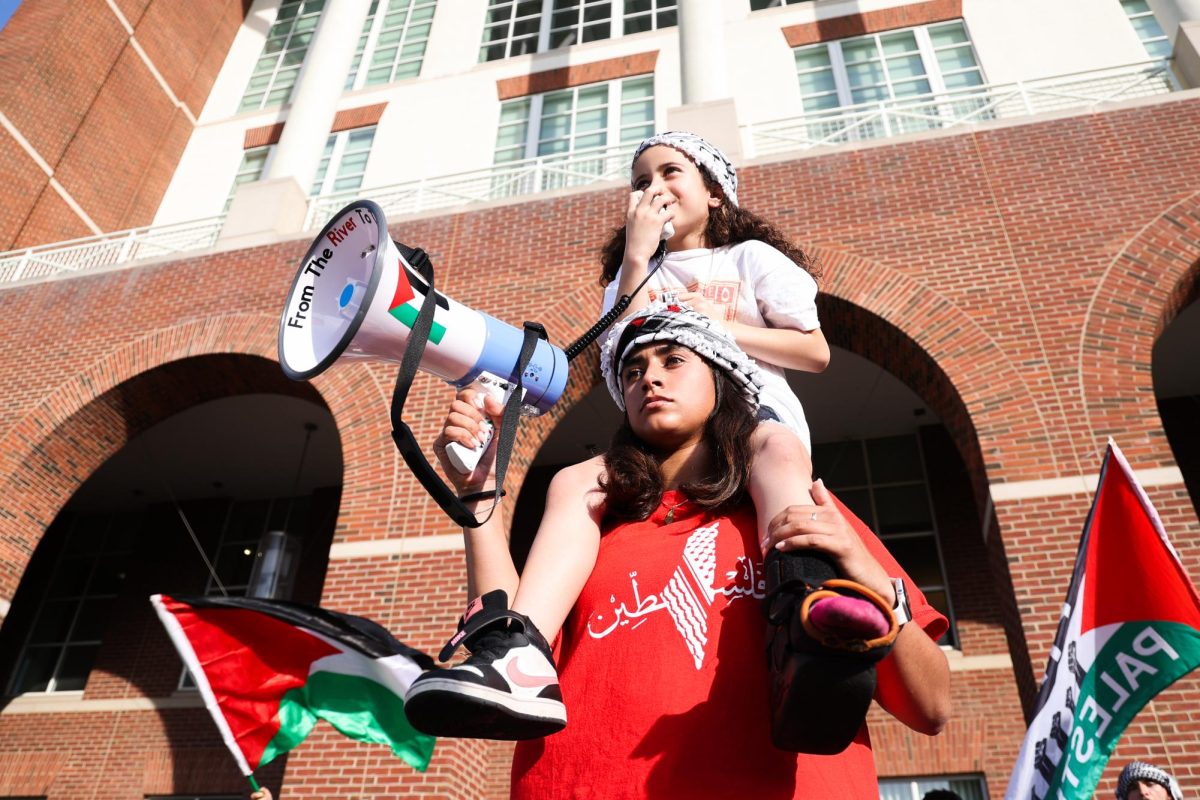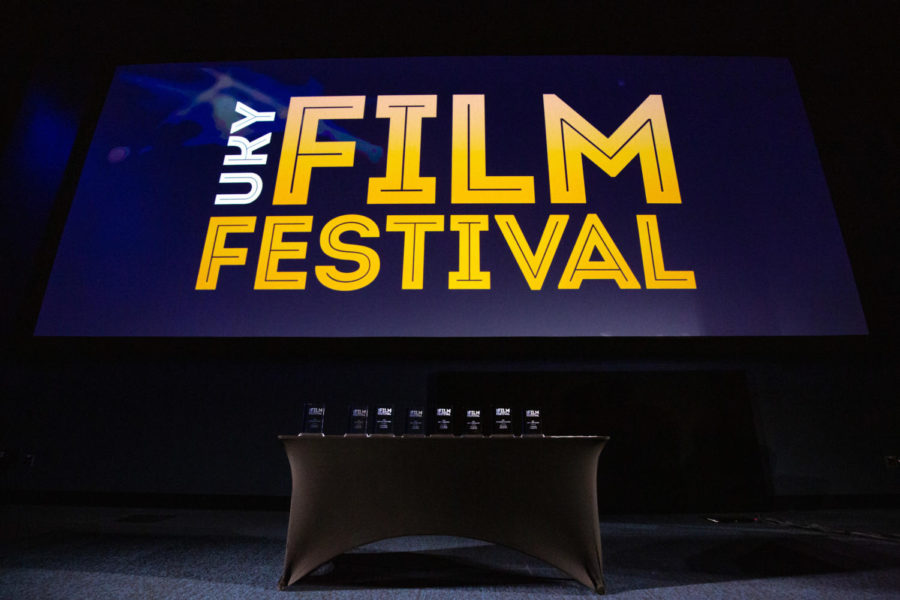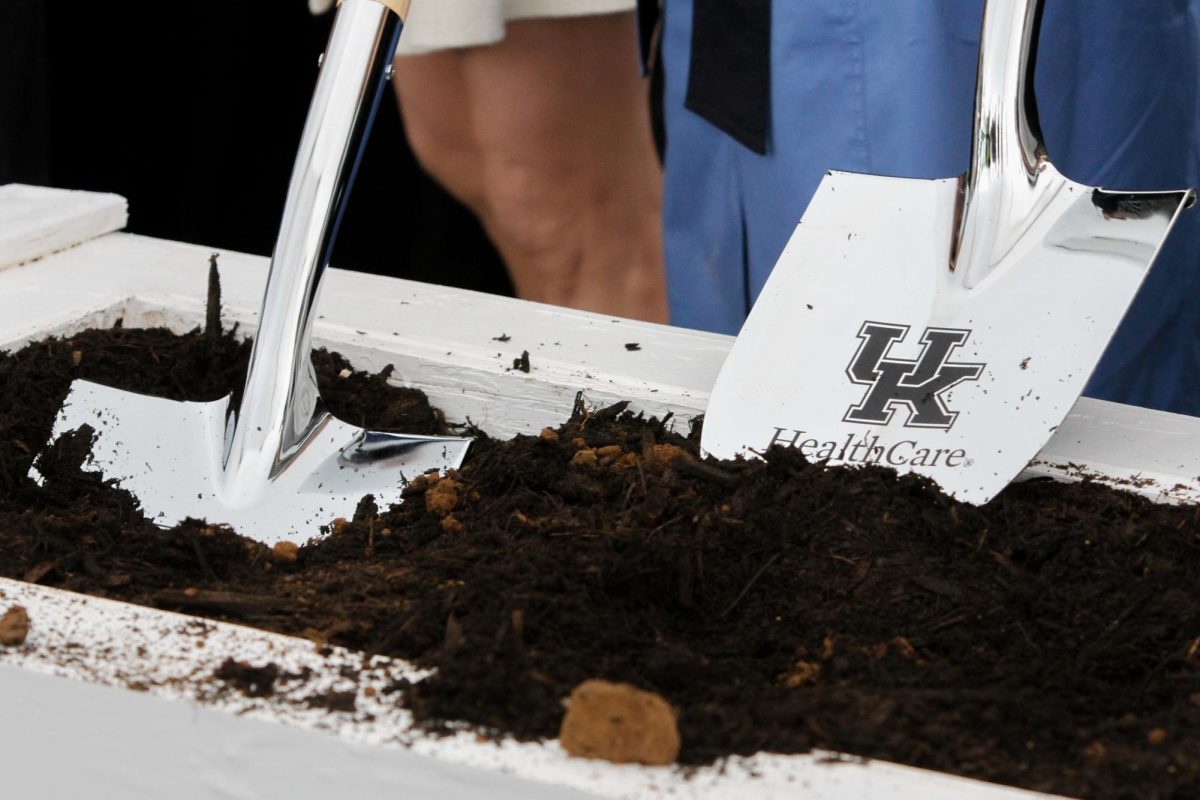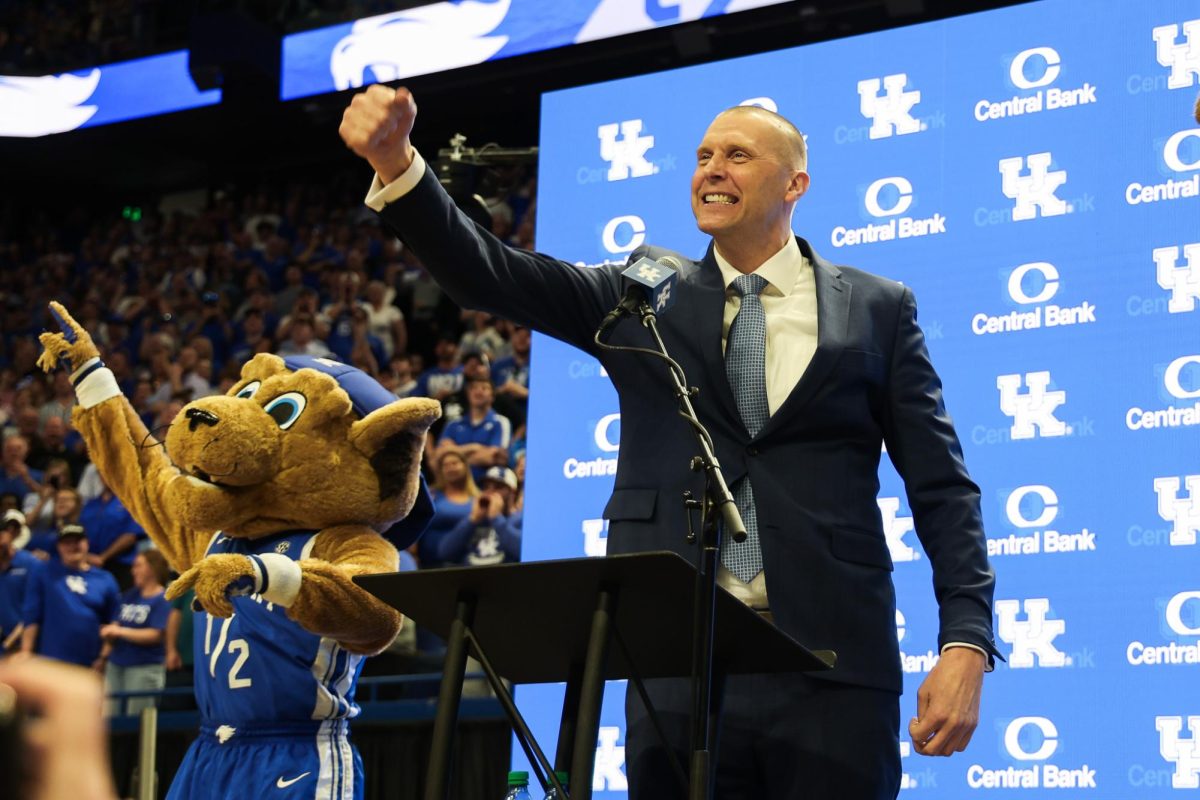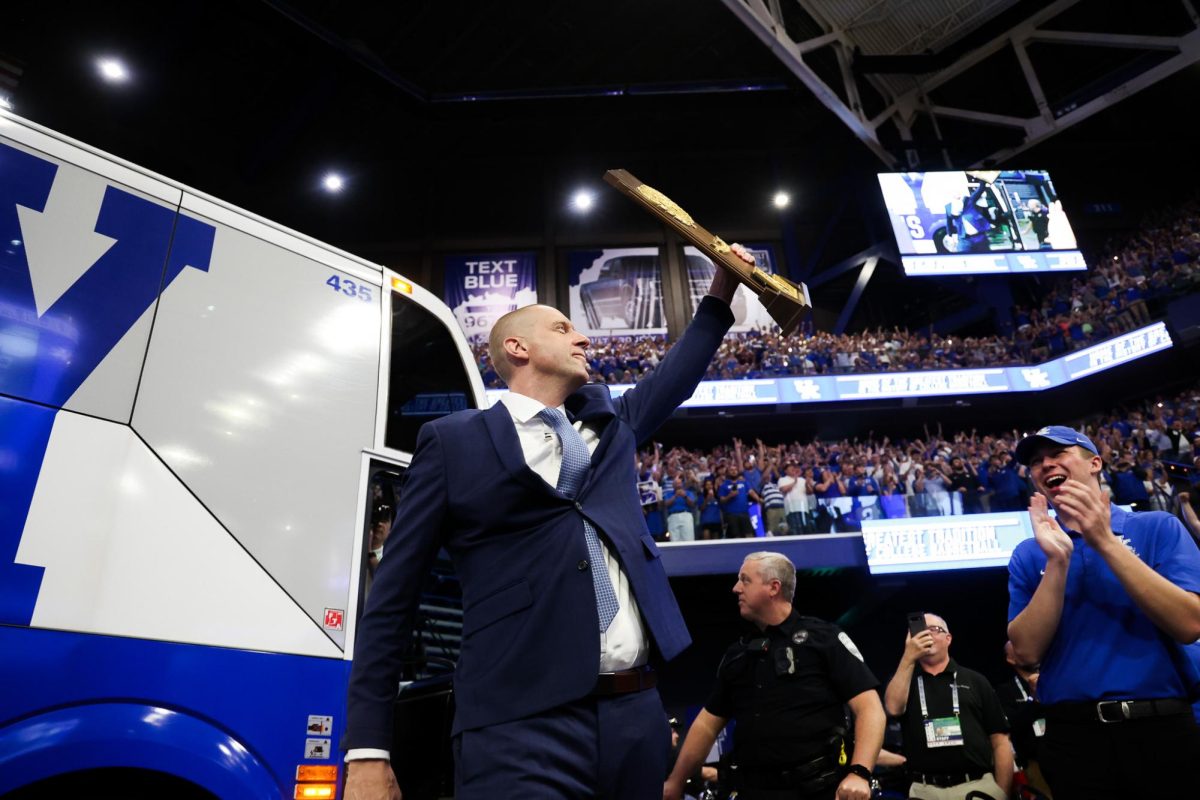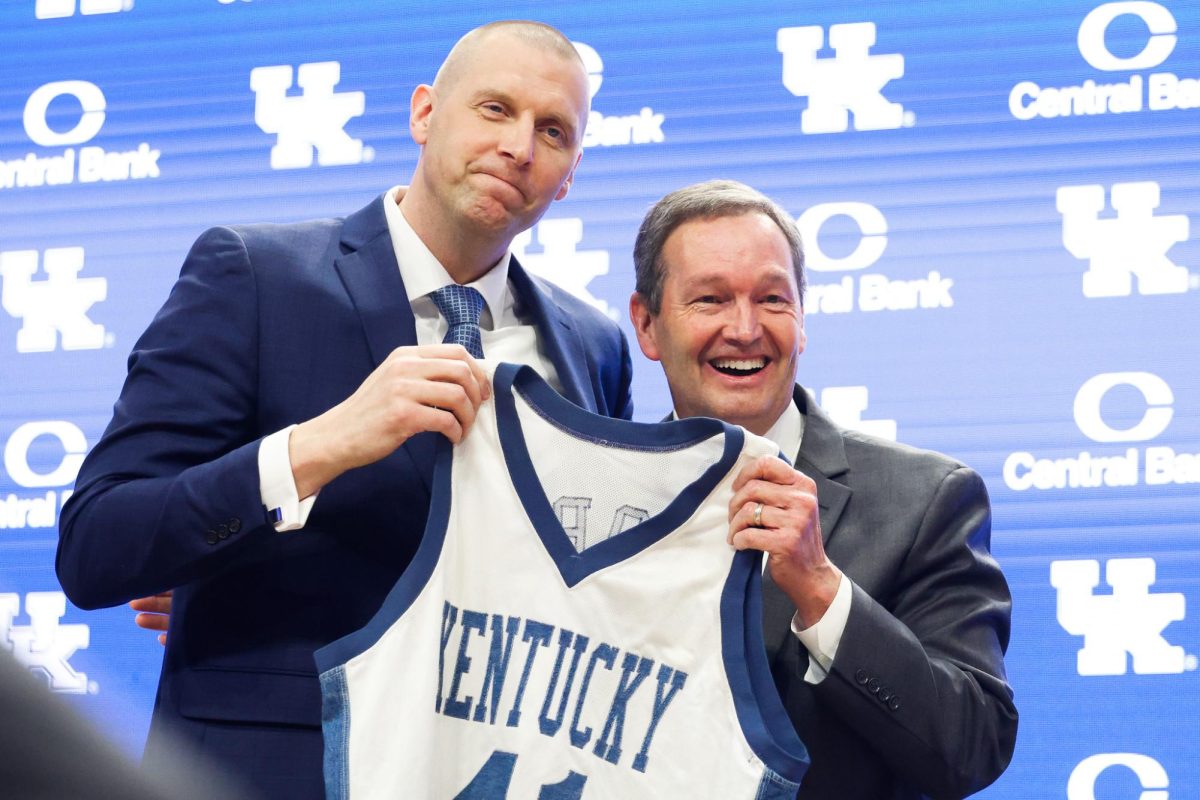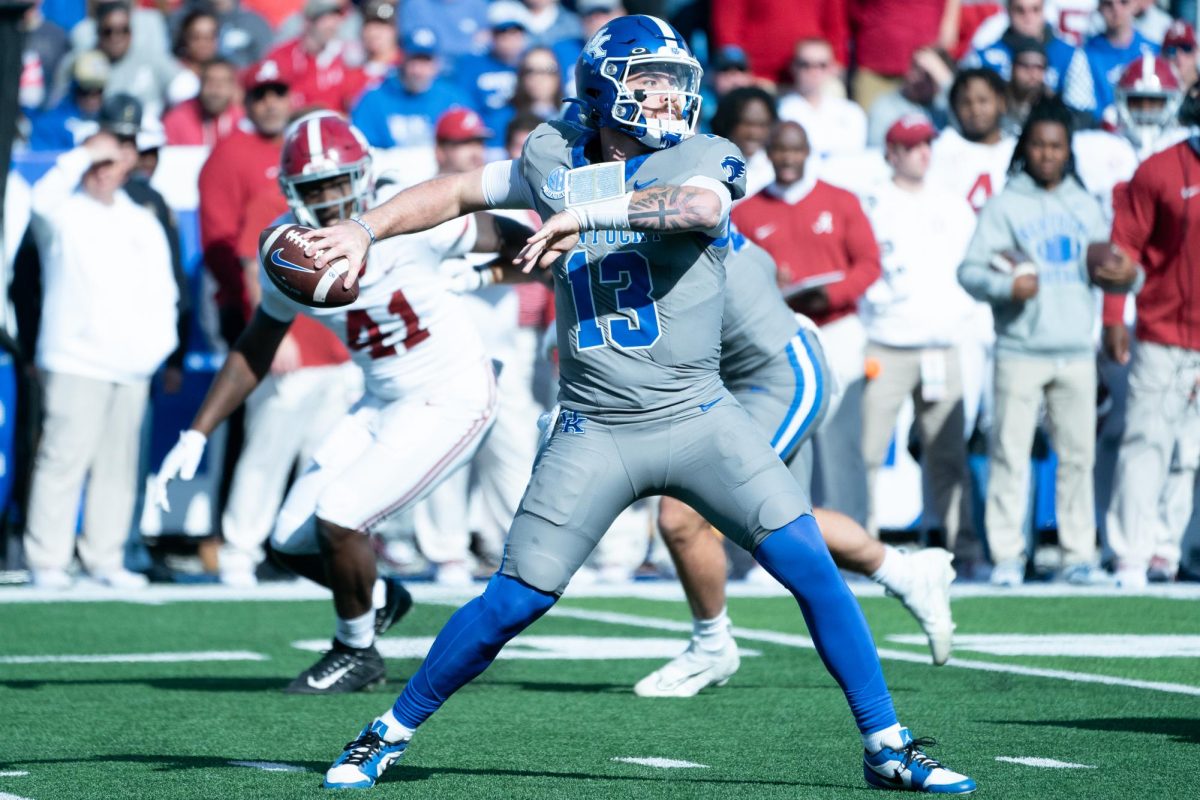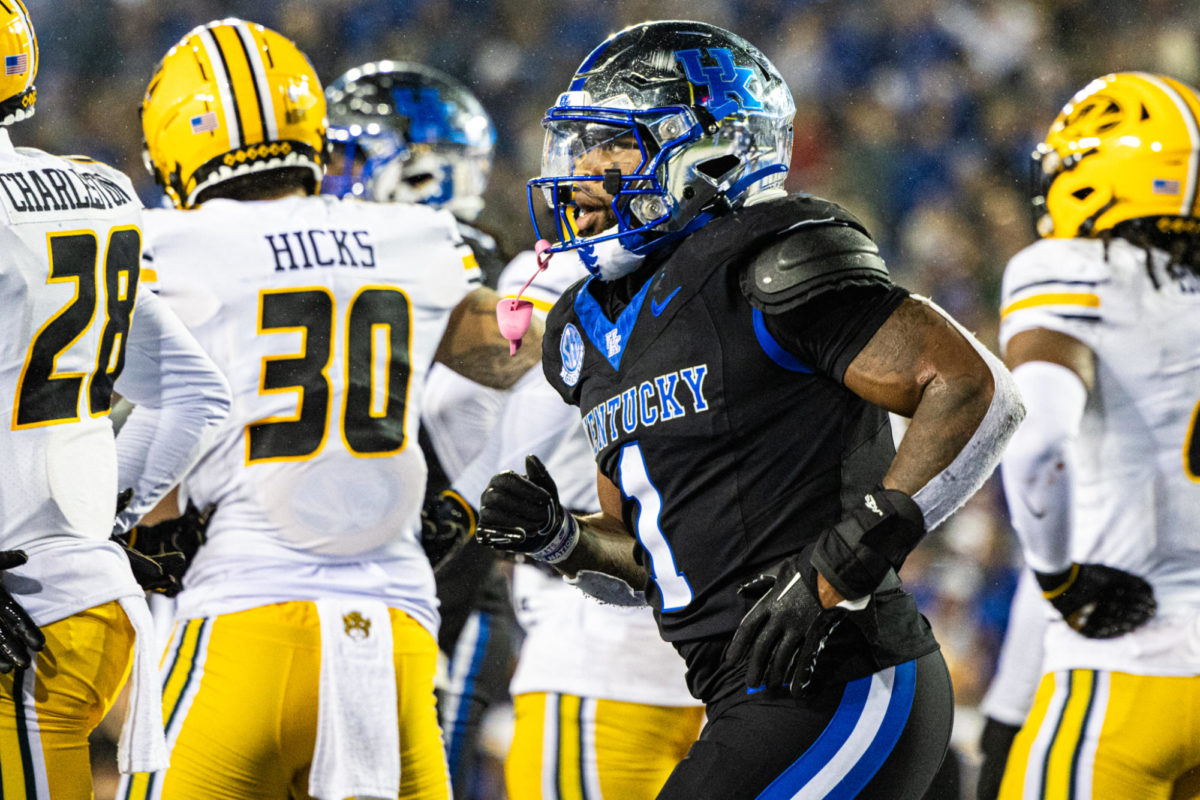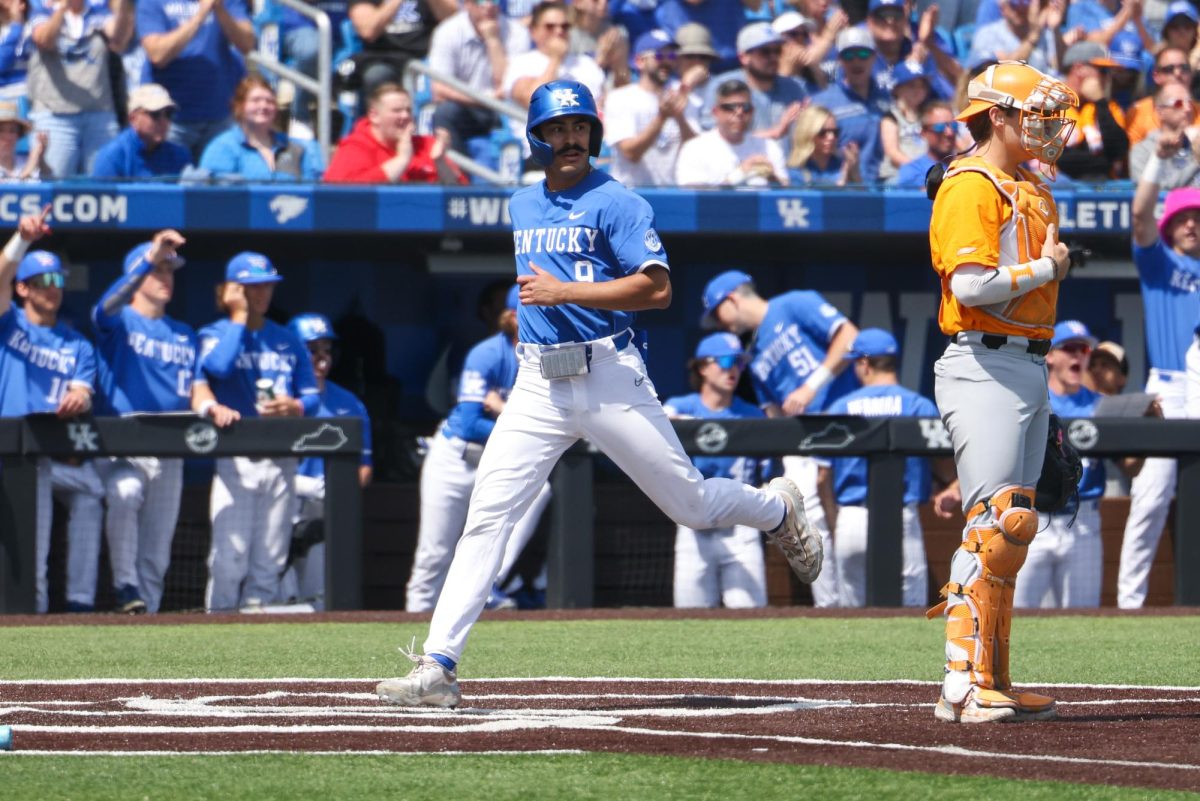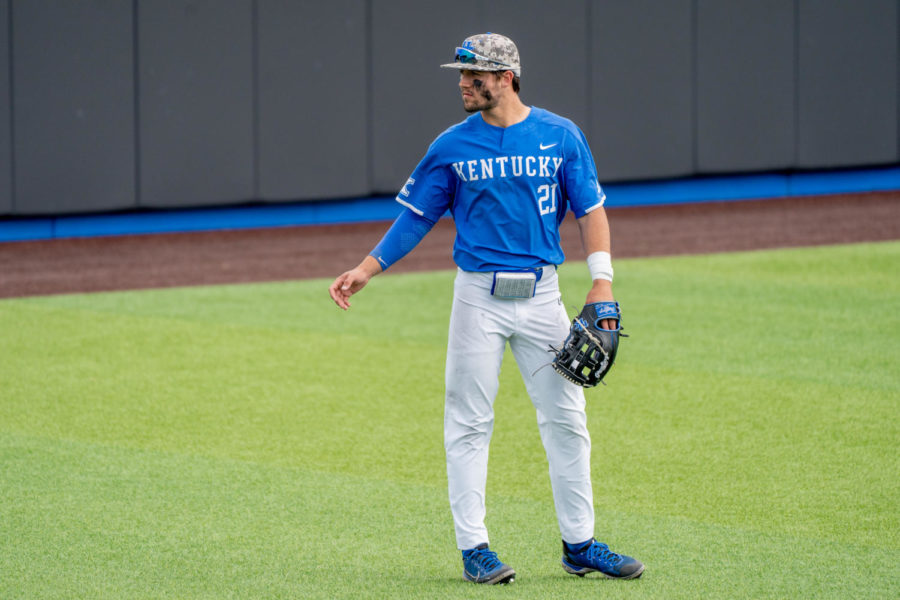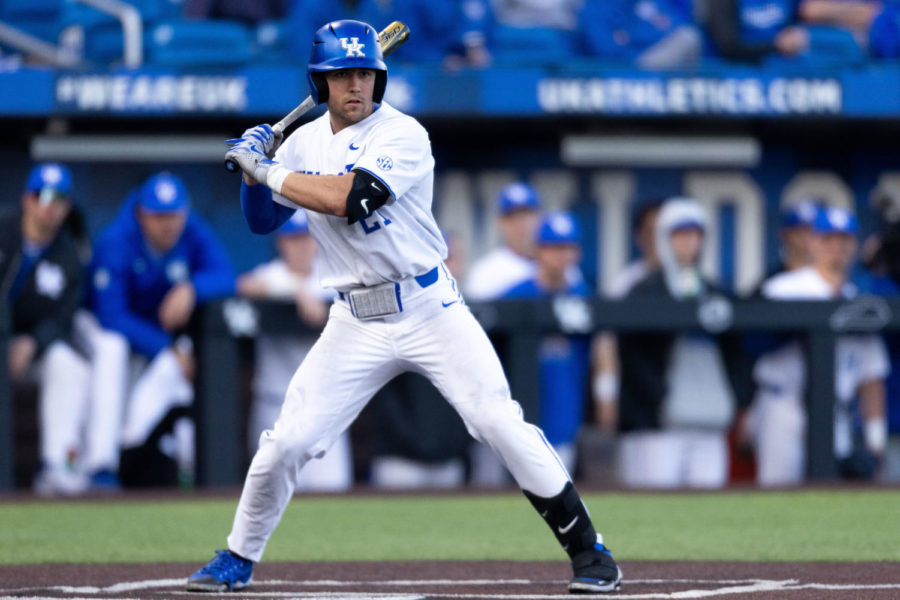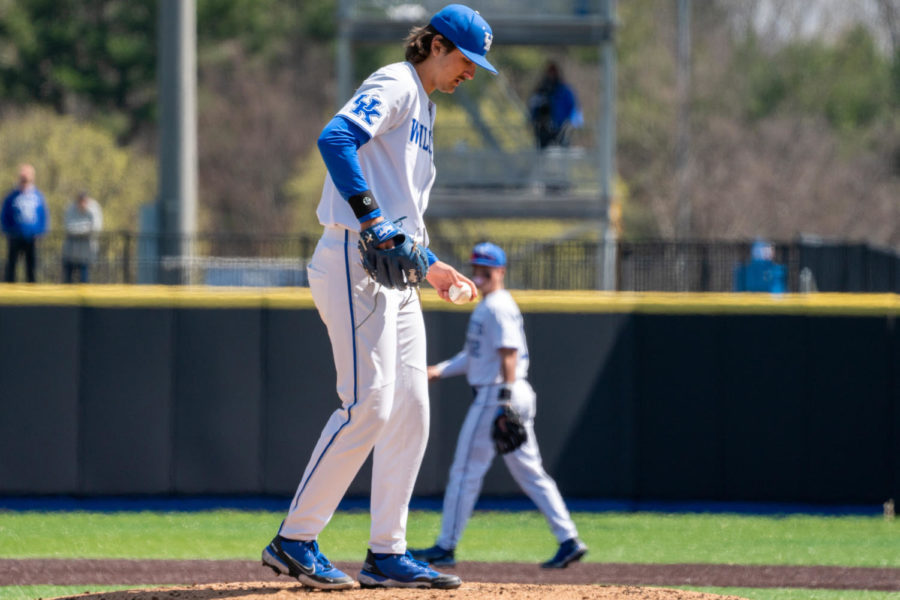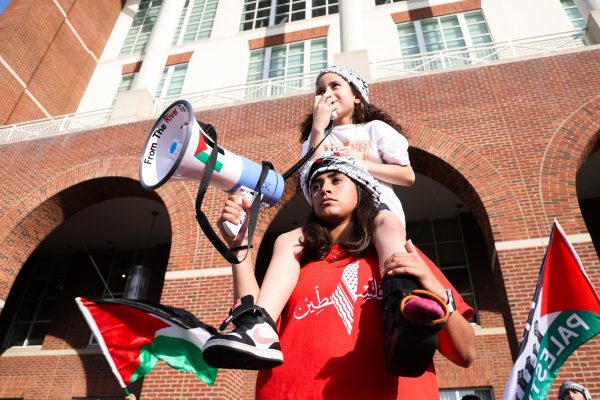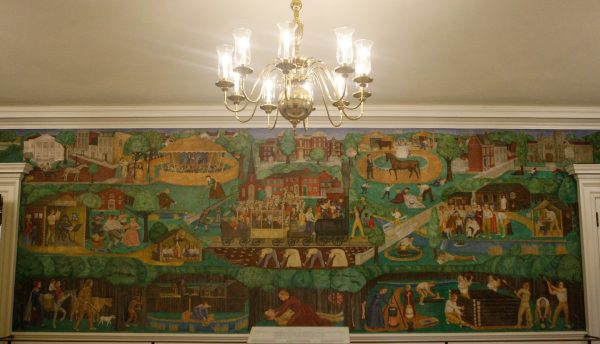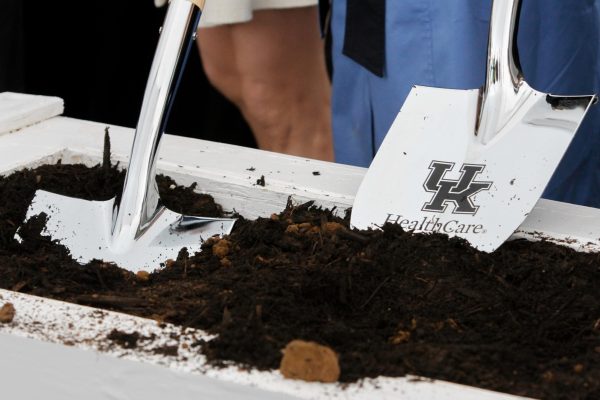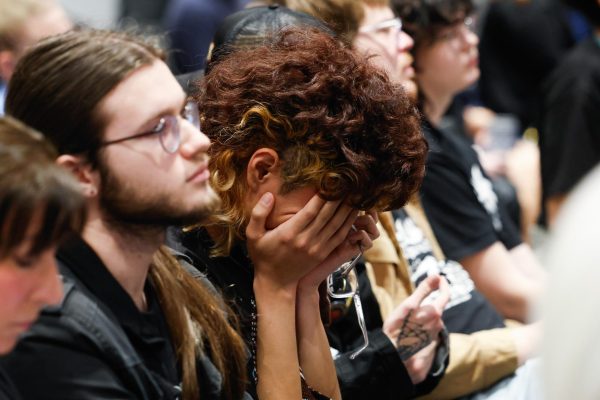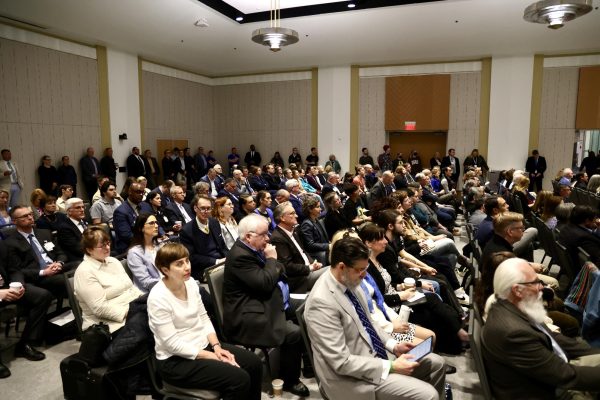UK Athletics revokes Kernel’s access to basketball interviews
August 30, 2011
A decision involving UK Athletics and a Kernel editor brought the First Amendment into question Monday.
Kernel basketball writer Aaron Smith’s media access to a set of men’s basketball team interviews was revoked Monday after he was said to have violated UK Athletics’ policy on interviewing student athletes.
The Kernel, an independent student newspaper, reported Monday morning that two walk-ons had been added to the basketball team — information that Smith had uncovered after looking up the two players’ cellphone numbers in the directory on UK’s website and calling them. The names of the players, Brian Long and Sam Malone, were first released on Twitter Sunday night by UK freshman basketball player Anthony Davis (@AntDavis23) and also reported on Kentucky Sports Radio just after 9 a.m. Monday.
UK Athletics has not officially announced the two players as walk-ons.
Long and Malone confirmed to Smith that they are on the team but declined to be interviewed further.
Smith was to receive access, along with other select members of the media, to one-on-one interviews with members of the basketball team on Tuesday, but lost that “reward” when he attempted to interview the two athletes, said DeWayne Peevy, UK’s associate athletic director for UK Media Relations.
Peevy said that Tuesday’s interviews are “a reward to, basically, a preferred group of people to give them special access.”
He said there has to be “some sort of trust” between UK Athletics and any reporter given access to this round of interviews because information received during them is supposed to be embargoed until Oct. 1.
Peevy, who has been at UK since 2008, said this was the first year the Kernel was invited to these interviews since he has worked for athletics, and no other student media has been involved either, to his knowledge.
Peevy said that he did not have a problem with Smith reporting the news, but once Smith found out Long and Malone were student athletes, he should not have attempted to interview them without first contacting Media Relations. Peevy said UK Athletics’ policy is for reporters to contact Media Relations if they want to talk to a player.
After Smith was alerted to the information on Twitter, Peevy said it was public record that they were on the team, but, “In a perfect world, Aaron should have called me to confirm.”
“I can’t be upset with you because you have that right,” Peevy said, of calling the players using phone numbers from the directory. “Going along with that policy is by choice. But I can choose not to reward you.”
Jon L. Fleischaker, a Louisville attorney who represents the Kentucky Press Association, of which the Kernel is a member, called UK Athletics’ decision “inappropriate.”
“The very fact that they don’t like the way you’re exercising your First Amendment rights does not give them the right to deprive you of an opportunity you would otherwise have,” Fleischaker said. He said the university should not have taken action just because Smith did not contact the players in the way the university preferred.
Adam Goldstein of the Student Press Law Center agreed that UK Athletics officials should not revoke access they had already given Smith, and that since reporters do not agree to a contract with UK regarding media coverage, “The university doesn’t have the ability to punish people for reporting the news.”
When the Kernel asked Monday afternoon if the policy was written, Peevy said UK Athletics officials do not have any written policies saying a reporter must contact them first when trying to access players but seasoned beat reporters know that is the preferred method.
After the Kernel posted this story online, Peevy tweeted a picture of the policy, saying it was “written in every media guide. No one signs it or anything, but it’s real.”
Peevy responded to several journalists and fans on Twitter after the story was posted Monday night.
Smith said this is the first time he has tried to contact a player without going through Media Relations, but at the time he had made the phone calls, it was not confirmed that Long and Malone were student athletes at UK.
Smith was the basketball reporter for the Kernel last season, as well, and is one of this year’s managing editors.
“I had had nothing but a positive relationship for a year, and I feel like this is a minor violation,” Smith said, “and (Peevy) even said that, too.”
Smith said in that sense, he felt like UK Athletics’ action was “excessive.”
In regard to the revoking of Smith’s access being a possible First Amendment violation, Peevy said, “If you see it that way, it’s fine.” He did not say that he was considering changing his mind about his decision.
Smith said he asked Peevy if he could gain access Tuesday to all the players except for Long and Malone, as a sort of compromise, but Peevy denied that request.
UK Athletics might have handled the situation correctly, said Stephen Dittmore, an assistant professor of recreation and sports management at the University of Arkansas.
Dittmore said that from a public relations perspective, one way to issue retribution for a reporter’s action would be to give an exclusive to a competitor, such as the Lexington Herald-Leader.
“I think sports organizations, from a PR perspective, need to be careful about how they issue retribution to organizations that cover them on a regular basis,” said Dittmore, who also co-authored a book on sports public relations.
He said it is important that organizations write down their policies, even if just in the media guides issued each year for basketball and football programs.
Dittmore said also, though, that the situation involving calling students using phone numbers that were publicly available constitutes good reporting.
“I’m not suggesting anyone should penalize a journalistic organization for good reporting,” he said.
The policy exists, Peevy said, in the interests of protecting student athletes’ privacy. For basketball players, he said, “the requests that we receive alone are so much that a student wouldn’t be able to be a student.”
“We give them an opportunity to be a student first, not a professional athlete,” Peevy said.
Kernel Editor-in-Chief Taylor Moak said she understands why that policy is in place, but she still thinks Smith acted appropriately.
“These sources were not confirmed as walk-on players,” Moak said, “and Aaron was just trying to confirm if they were, in fact, walk-ons, and he found the numbers in a public directory, which is open to anyone.”
She said the players were not yet confirmed as UK athletes, and it was not as if Smith was trying to contact directly a known member of the basketball team.
“He was just trying to confirm the story on his own, which is a sign of strong journalistic work,” Moak said.
Peevy said that when bloggers from Kentucky Sports Radio called, he did not confirm to them whether Long and Malone were on the team.
Peevy has gotten into public disagreement over coverage and credentials before.
In July, CBSSports.com’s Gary Parrish published a story saying Davis, the freshman who tweeted about the walk-ons, would have to face questions about his recruitment. Peevy replied to the story on Twitter, saying, “I guess we now know one media seat that will be available at Rupp this year. BBN don’t give them what they want, your clicks! #WeAreUK.”
Peter Baniak, editor and vice president of the Lexington Herald-Leader, said the newspaper had an access issue with UK Athletics officials when they held invitation-only access to events and invited one specific Herald-Leader reporter over another. He said the newspaper declined to attend.
Read the Lexington Herald-Leader’s story on the issue here
“Ultimately, we determine which reporters cover which stories,” Baniak said. “The newspaper makes assignments.”
A situation similar to the Kernel’s has not occurred with the Herald-Leader before, though.
“UK has never threatened to take away the Herald-Leader’s credentials over coverage,” Baniak said.
The updated list of media allowed to the one-on-one interviews Tuesday includes three print media, five television outlets, five websites and a marketing firm. Peevy said one of the media replaced the Kernel’s spot, and none of the remaining outlets are student media organizations. He refused to name the outlet replacing the Kernel.
Kernel editors have not decided whether they will pursue legal action for violation of First Amendment rights.
Goldstein also said that athletics programs and players have obligations to the NCAA, but reporters do not.
“It’s media relations and the institution that has the obligations, but they can’t seek to enforce those obligations by violating civil rights,” Goldstein said. “They don’t own your civil rights to contract them away to the NCAA.
“Nothing you can do — no contracts the university can enter into with anyone on the planet — can empower it to punish students for reporting the news.”


